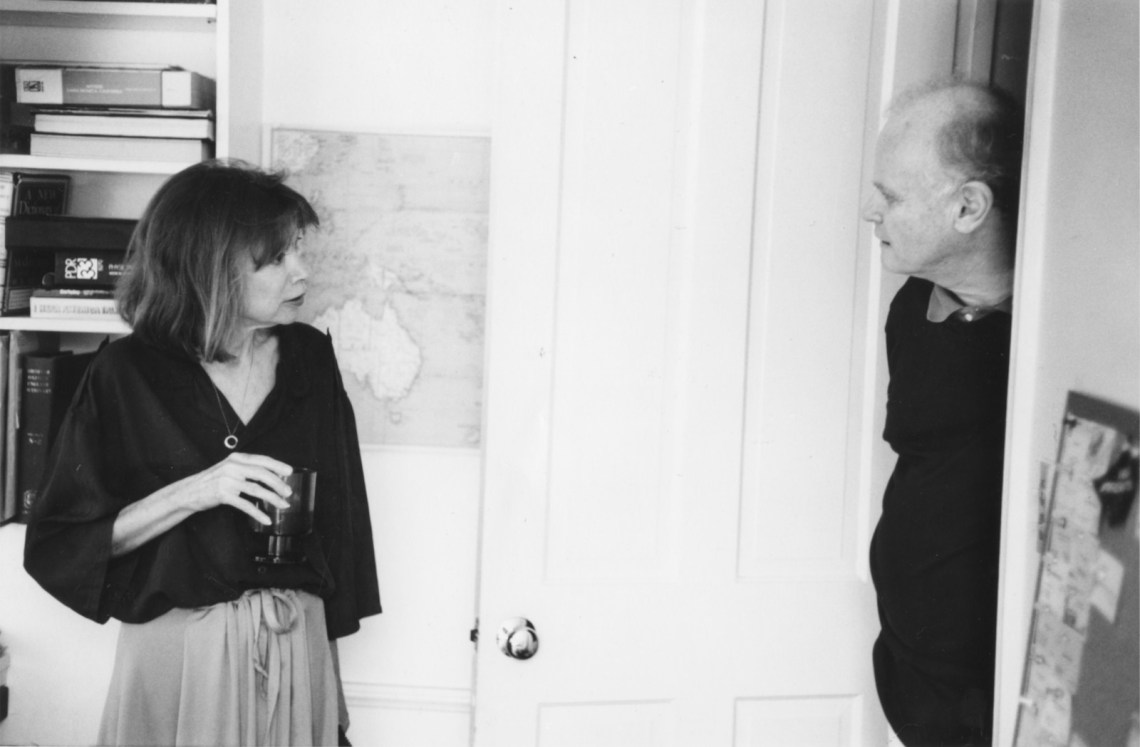We all come from somewhere. And the voices we rely on to tell us where that somewhere is or was, and how we did or did not function in it, are generally writer’s voices, those brilliant, uneasy recorders devoted to dismantling any preconception we may have about place, about the family, about home. Skeptical of the body politic in general and in particular, with its rites and passages, its social laws and communal rituals, the authors we return to again and again to explain where we’ve landed or where our country has been are those who do not turn away from who we are, and why. For my part, I read and reread the poet Elizabeth Bishop, the better to understand displacement, atmosphere, and the longing for the queer home; the essayist and novelist James Baldwin, to understand how cities like New York can break your heart while ghettoizing your soul; and Joan, Joan Didion, who taught me that family is always part of the story, along with place, and how the writer’s job is to face the terror, beauty, banality, and truth inherent in being a citizen of both.
Always in her fictional work there were what Elizabeth Hardwick called the “disastrous surprises in the mother, father, child tableau,” and those surprises, it seems to me, always ran parallel to politics, with its cronyism, makeshift families, fictions and disasters. Joan. What could she have meant when she wrote those stories about children disappearing, stories where lovers and fathers and daughters did unspeakable things to one another? And yet there was, still, our need for one another, for family, despite all, which gives so many of her characters a reason to live and dream, and accounts for the deep pathos in her novels. Looking back, I think Joan, like any great American author, was building a world, brick by brick, based on the world she knew, a universe founded on home, or ideas about home.
Always she was interested in community, whether in her native Sacramento or in a devastated El Salvador, or in New York, with its “lazy criminality” and destructive narratives about race and women, or a Miami shaped by deals and the drama of exile. Time and again Joan wrote about who we are and what we are, including how we live in a society peopled by citizens we may be related to or not, but to whom we are bound in any case because, as Americans, we are all the inheritors of a cracked, chaos-filled kingdom, one where the center does not hold but you can learn something from the fracture, if only you can face the cracks and fissures of history.
I have always liked the fact that, onomastically speaking, Joan is the feminine form of John. Who knew her better than her husband, John Gregory Dunne, who wrote in his terrific book Monster: Living Off the Big Screen that Joan was not someone you’d refer to as “the little woman,” she who in her book about John and grief described a social worker at the hospital calling her a “a cool customer.” I think Joan’s coolness, her not-little-womanness, has to do with her rejection of what women are often trained to do: to help before criticizing, or swallow it altogether. I thank Joan’s mother, Eduene, for encouraging her daughter’s skepticism when she gave her five-year-old daughter a writing tablet so she would stop complaining and write her thoughts down. The child who complains is the child who is uneasy with an accepted order, and I like to imagine Joan as a schoolgirl, or in a sorority, the pleasant middle-class reluctant female joiner in the rites of her class starting to squirm in her formal attire, the kind made of silk and tulle, sometimes pink, or always white, as she started not so much to march away from the world she had known as to write it down.
That’s the first trouble: describing your world, writing it down. Because that means you are thinking, questioning your place in it. Here is Joan describing both in her 1965 essay “Notes from a Native Daughter”:
What happened in New York and Washington and abroad seemed to impinge not at all upon the Sacramento mind. I remember being taken to call upon a very old woman, a rancher’s widow, who was reminiscing (the favored conversational mode in Sacramento) about the son of some contemporaries of hers. “That Johnson boy never did amount to much,” she said. Desultorily, my mother protested: Alva Johnston, she said, had won the Pulitzer Prize, when he was working for the The New York Times. Our hostess looked at us impassively. “He never amounted to anything in Sacramento,” she said.
And so it goes, and so it goes. You amount to something in Sacramento, or Zanzibar, or you do not. You are claimed as one of the tribe, or you are not. The point is to look at why these hierarchies exist in the first and second place, and why family is sometimes based on exclusion, or whim, or longing, and write it down in all its disasters and ideologies and joys, the better to tell us who you are and why, and why, despite the facts, you always end up wanting to go home, to that place, no matter what you call it.
Advertisement



